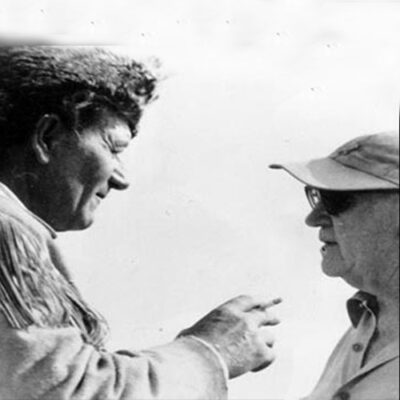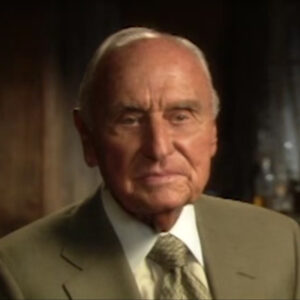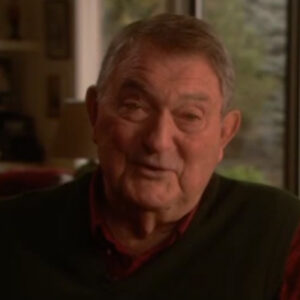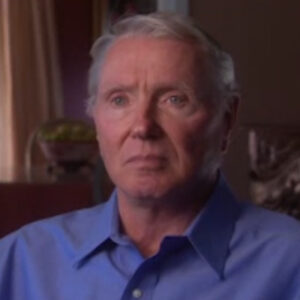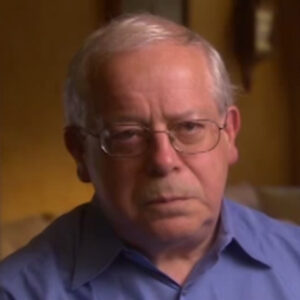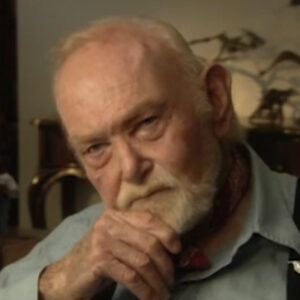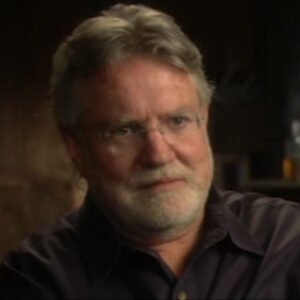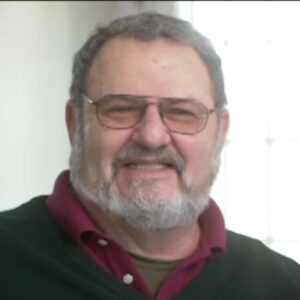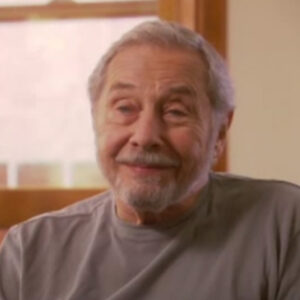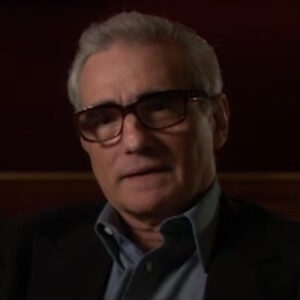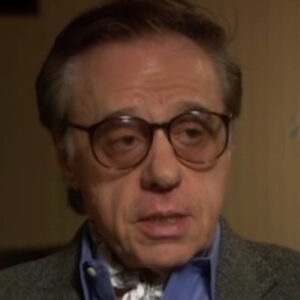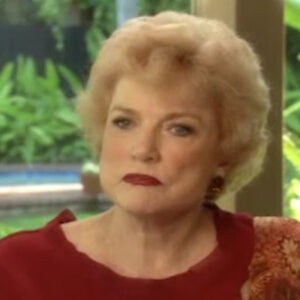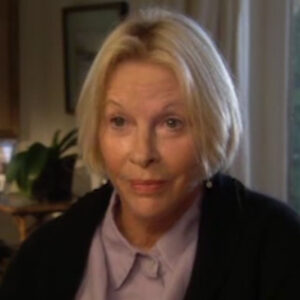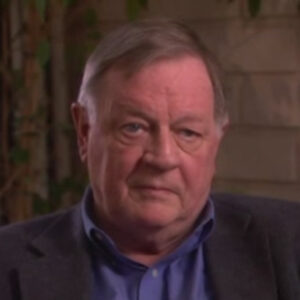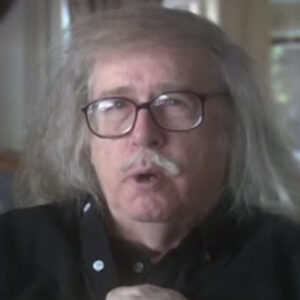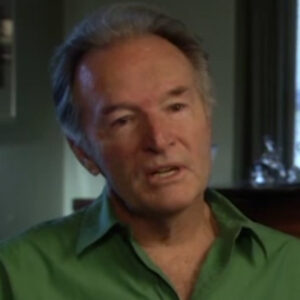Speaker Joseph, in your introduction to your book, Searching for a Job for You at the top 10, Galavis said Ford trying to solve a mystery. His life and personality remain inscrutable. For there were many of whom there were many people who knew him.
Speaker My first question to you is, who was on for. His background, his upbringing.
Speaker He was John Ford said, if there is one thing that John Ford told Eugene O’Neill, if there’s one thing that defines both of us, is that we’re Irish. So I guess I’d start with Ford being Irish and his sense of being dispossessed, even though he was born in America, his parents were of the generation after the famine who came to America and had a keen sense of having left their homeland and lost their their their roots. And so that was a big part of John Ford in the sense of being a rebel and sort of an outsider in American society. And yet he yearned for insider status. And a big part of John Ford was being in the military and he loved being a rear admiral and hobnobbing with, you know, a great military figures and and being America’s national myth maker, I think is what he ultimately became. I think that’s his most important role in our culture, is he took it upon himself to define our culture to ourselves.
Speaker How did his career in movies star?
Speaker John Ford’s brother, Francis, went to Hollywood and he was a stage actor and he got into the movies in the very early days and became a star in early to Reelers. And John Ford followed him out to Hollywood in 1914 after high school. Ford went to University of Maine very briefly and was slurred as a shanty Irish person by some wise student. And Ford socked him and he was a waiter. And he saw the guy and left and went to Hollywood and became a stuntman. Actually, his first job was ditch digger. Francis put him to work on the lowest level of filmmaking at Universal, which was a nascent studio at the time. And but he got a wonderful training from Francis, doing everything from stunts to assistant director actor. He actually acted in some of the early films of Francis, treated him badly. And there was this sort of bullying older brother thing going on where John Ford once got almost killed by a bomb and some film and spent some time in the hospital and and did all his hair raising stunts, jumping off trains. And so later in life, Francis was on the skids and he became a bit player in his brother’s films. And John Ford was amazingly cruel to him in just doing the worst kind of practical jokes and humiliating him in every possible way, making him play an old drunk in the films and and he would scream and things like that for the bomb, you know. And Francis was an alcoholic. And there was a time when he fell asleep and he was asleep in a barrel on the set. And later and if an actor is in the doghouse for John Ford, they say he’s in the barrel and that’s where that came from. But they’re tired of John Ford tie a horse to the barrel. And had Francis dragged down the street and he woke up from his hangover being dragged, you know, and the court was shouting, that’s for the bomb, you know.
Speaker So he had this very malicious against James Cagney was once asked, is there one word you use to define the Irish? And he said malice and that sort of defiance. Part of John, for the record, was a man of many parts. And what I learned about him was you couldn’t really reconcile all the different parts. They all didn’t quite mesh. But that’s what made him a great artist, but a very unhappy human being.
Speaker And but as an artist, he reminded me of Tolstoy, who was like that in the Tolstoy, was a rich aristocrat who wanted to be a peasant, and he was a libertine who wanted to be an aesthetic. And John Ford was filled with contradictions. He was a rebel left winger who became a right winger, and he was wanted to be an insider. And and he was he revered family. And yet he was terrible to his own family and he revered community. And he couldn’t could never be part of a community except as the tyrant, tyrannical father of his little stock company and players, which he ruled like this Old Testament father figure. But he was he didn’t live out in his life the divisions that he had in his films. But that’s kind of what makes the divisions so powerful, I think, is that he so badly wanted, you know, community and family and home and all these things. And yet the films are also about how all those values are constantly destroyed.
Speaker He was also wonderful at creating myths about himself. Yeah, he was a cowboy and some of the myth that we’ve become sort of legend.
Speaker Yeah, well, Ford was difficult to write about because I spent 30 years, you know, struggling to understand him and writing my biography of him, partly because he created a smokescreen of mythology around himself as a self protective device. And he loved most directors do that to some extent because they’re storytellers by nature. And so they make a better life story than they really had so hard with make up stories. He was a cowboy on the way west to Hollywood and he fell in love with the ranch, his daughter. And, you know, it’s sort of like the plot of an old trailer. And there were a million of these stories. But Ford would he was a self-conscious, self aggrandizing myth maker at all of Kerry, who was one of his actresses who really knew him well, said that he was a total ham and a wonderful actor. And he acted the role of John Ford and he acted the role of a director. And he was bigger than life. And he was over the top and he would be played on the set with Danny Brzeski playing the accordion with certain music. And it was all a big act. And but she felt that she knew him as well as anybody. And she felt that all this tough guy, gruff, macho character, was created to hide the real John Ford, which was very sensitive and very vulnerable. And he had a feminine side that he was sort of ashamed of because in his time, men were supposed to be tough. Guys are, you know, having a feminine side was not looked on with favor in that society. And also being an artist was looked on with suspicion. And that was equated with being feminine and sensitive. And so he feared that part of himself. So he created this image of this rugged, macho cowboy, which he was not.
Speaker That’s why I used the term you always do the job.
Speaker Yeah, yeah, and then he was a serious, sensitive artist and you couldn’t admit that in Hollywood they would have killed you. So he always said he was just a hard nosed craftsman doing a job of work. And and he wasn’t interested in art. He was only interested in money or having a job. And and he would do bread and butter pictures every once in a while just to keep his hand in and make sure that he was bankable so that he could do one of his pet projects. And producers used to say try to avoid fraud when it’s time for him to do one of his pet projects that won’t make any money, you know, because but he would do that. He would make three films for the studios and then he would get to do The Sunshines Brighter, one of his little films that he really loved that were wonderful. And he would pull them off every once in a while. But the last thing you could do is run around and say, I’m a great artist and I have serious things. So he would pretend he didn’t. He pretended that he was an illiterate cowboy. And once he let down, his guard told Hedda Hopper in the 60s, he said, you know, I posed as an illiterate, don’t let her get around. But he was very well-read, very erudite man, even though he was self educated. But he was constantly reading. He had thousands of books and he knew a great deal about the Civil War and he knew a lot about literature. And and he was read a lot of poetry and he knew a lot about painting and but he wouldn’t be caught dead admitting that he wanted to come for a second to.
Speaker There’s no case every time you going to go. So.
Speaker How did it come about that? Well, I covered it for it. How did Ford become a director?
Speaker With Harry Carey, Erick Erickson Whored was.
Speaker Paid his dues with his brother Francis for a few years and building up to director and he would start to direct background people and, you know, kind of second unit type things. And he became notice that he was a good leader and he had a good, strong voice. And he was a big, tall guy who was a football player. And he seemed like a natural leader in the studio, started paying attention to him. But Harry Carey Jr. became Harry Carey Senior became friends with Tony.
Speaker So how did it come about that charge a fee? Yeah, in the becoming a director after being punished by his brother. Yeah.
Speaker Yeah. One thing that surprised me when I went to Ford’s funeral, I saw the coffin being lowered into the ground.
Speaker And on it it was it’s a Johnny Pheeney. And I had no idea that that was still his legal name and always was. And but he changed it to John Ford because his brother took the name Ford after the motor car, apparently. But John Ford has a nice Elizabethton ring like the laws of these days. And playwrite, his brother Francis was his mentor and he said he learned everything from Francis and maybe a bit from David Griffiths, a great admirer, too. But Francis was a great picture maker, and Francis helped his brother get started as a director. After about three years of doing every kind of job for him, Carl Lemley, the head of the studio, started noticing Ford and Francis put in a good word for him. And there was a time when Universal had a big opening of its lot and they had a huge party and festivities. And there was a director who was supposed to stage some Western action and he got drunk and couldn’t do it. And John Ford stepped in and and directed the Cowboys going back and forth up and down the street. And then head of the business manager of the studios said, can’t do anymore. So Ford burnt the town down. And I thought that was great. And Ford always said that. Karl Lemley said that Jack Ford, he yells real loud, he’d make a good director. So there may be some truth to that. But Francis really intervened with Lemley to say, give my brother a job. So the first film Ford directed was a film called The Tornado in 1979, which was lost. But it’d be great to see it because John Ford plays the lead, which is kind of hard to imagine. He plays a cowboy who gets money to bring his mother over from Ireland, which sounds very personal. But after a few years of doing a few short films with various people, he started working with Harry Carey, who was a very fine actor from New York, who was the son of a judge, and he was a real New York guy, but he had a cowboy look. And so he became one of the early cowboy stars and he was a Griffith actor. And Olive Carey, who was Harry’s wife, who was a good friend of John Ford. Francis came to her and said, Would you introduce Jack to Harry? And they should work together. And so that’s how that all came about. And they made a whole bunch of pictures together for a few years before they went their separate ways. And Ford started directing all different kinds of pictures at Fox in the 1920s before it goes on and makes the iron horse.
Speaker And by the mid thirties with the Academy Award, he’s considered one of the most successful teams in Hollywood. And five years later, he staged Lordsburg and he decides that’s going to be his next film. How’s it coming, how does it come about?
Speaker He decides to cast John Wayne and as a kid, what’s the story behind you as well as a whole long history of John Ford and John Wayne going back to the 20s when Duke Morrison was his name.
Speaker Marion Morrison was a prelaw student at USC and he was working as a prop man in the summers because he was a football player. And the coach got football players jobs lugging furniture around on sets. And Ford and Wayne became friends and Ford noticed this good looking young guy and started giving him some bit parts. And Wayne was also a prop man and some of the early films. And so the first Ford film that he’s in a hangman’s house in 1928, he’s he’s visible in a scene where he’s knocking down a fence. He’s all excited and he’s an Irish horse race. And so he starts doing these little parts and his first talking to reporters and salutes, which was made at the Naval Academy in 1929. And that’s where word Bond and Ford word Bond was in the U.S. football player that Ford made into an actor. They have these good little parts and then something happened that nobody really knows why. The Ford sort of ostracized Wayne for several years and Wayne was doing he got a big starring part in the big trail at Fox for Raoul Walsh, which is actually quite a good film, a very spectacular Western. But it was a huge flop. It came out in the depths of the Depression. It was a widescreen film in a process. A lot of the studios, a lot of the theaters couldn’t show. So it was a big bomb and it kind of hurt Wayne’s career and made him relegated to doing great movies for Monogram and Republic and a lot of studios. And so Ford shunned him. And it may have been partly because he was jealous that Wayne had gone off the lot and done a film for another director. And, you know, it’s interesting that even though Ford is credited with being the guy who made John Wayne who he was, it was Raoul Walsh who first saw Wayne’s potential as a leading actor. And then it was Howard Hawks later who gave Wayne his most complex role to date and Red River in 1948. And Hawkes told me that after seeing Red River, Ford said, I never knew the big son could act. And I believe that story because Ford had not given Wayne roles that were as complex as Tom Dunson before that. And he immediately put them into Suriel River and where he was only 35 years old. But he played an old man, a cavalryman who’s about to retire and who’s wonderful, could be even his best performance right up there with the searchers.
Speaker When he was when he was in the 30s, he was playing in movies like, yeah, Randy rides alone, I believe is the one where Wayne is the singing cowboy, which is really hilarious to see.
Speaker And there’s a certain charm to those super cheap Republik Westerns that were all shot in six days because they had Sunday off and that was it. And I mean, there’s one where Wayne rides into town and a horse is about to be hanged in the town square for killing somebody. And Wayne rescues the horse. That’s the entire plot. But he’s very charming. And there’s a kind of ease and and simplicity, boyish good humor about that character. And so Wayne was paying his dues for nine years in exile after blowing his big starring opportunity. And he was angling to be a Ford actor again. But Ford was tormenting him, you know, sadistically having him around. After a while, they kind of became friends again around nineteen thirty five. But Ford would never give them apart. And Ford later told one of Wayne’s wives that he was waiting to win season probably two to have a good part. And that’s probably true that Ford felt that Wayne needed some maturation and some lines in his face and some some more emotional depth before he would give them a big role. He wasn’t going to do it just out of friendship. But in 1938, John Ford’s son Pat read the story stage to Lordsburg and Collier’s magazine by Ernest Hitchcocks and said, Dad, that’s a good idea for a picture. And Pat never gets credit for that. But so Ford started thinking it’s time to do another Western. He actually hadn’t made a Western for 13 years. And there were a lot of Westerns being made at the time. But Ford is credited with raising the genre to a new peak of artistic perfection. Although there were a lot of other good Westerns being made, Stagecoach stood out as a beautifully made, serious film, and he gave Wayne the part before he gave him the part. He was tormenting him by saying, Do you think I should get Lloyd Nolan to?
Speaker Play the role, you know, and Wayne would say, yeah, he’d be pretty good, and finally he gave him the part and he was great. And from that point on, Wayne, you know, was a major actor, but he was still under contract to Republik. So he still had to do a lot of sort of not so great pictures. But he started getting better and better lead roles after that.
Speaker But even though for Gateway, the part stagecoach, I mean, the stories are that doing the making the stagecoach. It was merciless.
Speaker Ford was always terrible toward Wayne, I’m told, when they were shooting, he was just ragging him mercilessly and word bond treated word bond even worse because he apparently didn’t have a lot of respect for word bonds intelligence.
Speaker But, Wayne, I think he I think there was a kind of a love between them. There was a father son relationship and maybe a certain aesthetic or emotional appreciation of Wayne. Somebody once said to me that John Wayne was to Ford what David was to Michelangelo, which I think is a good analogy. He was the ideal man, the masculine ideal. And Garry Wills in his book and Wayne even talks about the poses that Wayne had. The Ford sort of trained him to stand in certain ways, were very much like Michelangelo’s statues. There’s something very aesthetically beautiful about the young Wayne before he became this craggy monument and the beauty of its own. But he was a very handsome young guy. And Ford saw him as an aesthetic object. But he also saw his his potential as a strong emotional actor and a kind of American iconic figure that began to emerge in Stagecoach.
Speaker And but he treated him terribly on the set, he would say, and to walk like a man instead of skipping like a fairy and, you know, terrible things.
Speaker And and the irony was that he modeled that walk that he had on John Ford. Olive Carey told me that Ford had this distinctive walk where he was kind of moving his hips in a certain way. And and Wayne copied that because Wayne, even though Ford was so mean to him, he worshipped him. So he kind of modeled himself on John Ford to some extent.
Speaker When Ford said you’re skipping like a Ferrari, he was commenting on himself, ironically, and he would say things. Don’t you know how to wash your face? Can’t you you know, you got to wash your face. Don’t dab your face. But when Claire Trevor, who is Wayne’s co-star in the film, said Wayne really needed that kind of harsh treatment because he had acquired a lot of bad habits as an actor from all these big movies that Ford had to eradicate by by giving him a hard time.
Speaker And he got a great performance out of him, but it was not something he could just walk on the set and do at that point in his career, where we see the classic shot, where the stage plays out for the camera castaway to the rifle, that was Ford’s signature shot to do what for?
Speaker One of the great entrance scenes in movies is Wayne’s first appearance in Stagecoach, where the camera rushes toward him when he shouts and the camera goes toward him and it goes out of focus for a moment, which is kind of terrific, I think, in a way, because I like the roughness of Ford shooting. Ford didn’t like to reshoot things to make them look perfect. He liked the feeling of spontaneity, like it was captured in an almost documentary style. But the camera rushes toward him in this great Close-Up. And it’s clearly Ford saying this is a very important moment here. Rediscover our hero and here is my new leading man. And so it’s very self-conscious and very exciting to see that. So Ford was giving Wayne a tremendous star introduction to the American public, and it really worked. The public fell in love with John Wayne and they saw him in a deeper light than they were allowed to see him. And in his is be Westerns. Before that, Ford had great taste in directing Wayne. I think the difference between them, Wayne, I love John Wayne. He’s my favorite movie actor, but he didn’t have the greatest taste. Sometimes in some of the things that he would do, he would overdo the comedy shtick or he would be a little too schmaltzy in certain things that Ford would restrain him and make him just give enough of those moments where he didn’t overdo it. Ford and Hawks and Wallace got the best out of Wayne and other directors didn’t as much because Wayne would bully other directors, but he couldn’t bully those three guys, certainly not Ford. And I asked somebody. You know, why did Wayne put up with all this crap from Ford for 40 years and the person said, well, he put them in stagecoach. Very simple, you know, and Wayne had the intelligence to realize that he owed everything to this guy. And so he would put up with this amazing treatment, sometimes really vicious, like they were expendable. You know, Wayne was notoriously shirking service in World War Two, and Ford really had contempt for that because Ford was in the Navy. And they also said he thought that Wayne was just sitting around Hollywood getting rich and being a star and didn’t want to serve his country. And so he didn’t. He lost a lot of respect for Wayne. So they did this great World War two movie, which was very authentic and its all its details. And Robert Montgomery played the lead and he was actually in the Navy and very authentic kind of actor and Wayne was good, but he played a kind of the bad boy guy who had to be disciplined and brought him to the the military ethos.
Speaker But Ford said to him on the set, who can’t even, you know, salute? Can you even fake a salute?
Speaker Can’t even pretend to salute properly, something to that effect in front of, you know, 100 people. And Wayne walked off is the only time he ever walked off the Ford picture. And Robert Montgomery, who’d been the president of the Screen Actors Guild, came to Ford and put his hands over Ford’s director’s chair and said, Don’t you ever talk to an actor like that again? And Ford burst into tears and sort of apologized to Wayne. And Wayne came back and all is forgiven. But it was really unforgivable behavior, you know, toward an actor.
Speaker When we introduced this, the American movie or the way we also introduced it, Stagecoach introduced us to my family and my family.
Speaker How did you come to find this location?
Speaker There are a number of stories about how Ford came to find the Valley.
Speaker And I think that probably the most accurate story is that Harry Goulding, who ran large on the Indian reservation, which is what Monument Valley is part of the Navajo reservation, Goulding’s Lodge was there from the 1920s and the Navajos were having a really hard time during the Depression.
Speaker And Goulding’s thought that Hollywood should use it as a location. And it had been used for a couple of films before Stagecoach, but never to great effect. But Goldwing came to Hollywood and was hanging around trying to get John Ford’s attention because he knew that he was planning a big Western. And Ford looked at some pictures of Monument Valley and and flipped. And but he later claimed that he found it when he was driving through there on vacation and all that kind of nonsense, you know, but that seems to be how he found it. But Monument Valley was Ford’s ideal kingdom or his his happy hunting ground or his version of heaven. He thought it was the most complete and beautiful place on earth. And it’s spectacularly beautiful. The light. There are changes constantly. And one thing I was struck by, the light is like the light in Connemara on the west coast of Ireland, which is where Ford’s family came from. The light keeps changing there. And it’s really spectacular to somebody who is as tuned in to the nuances of light as Ford. I think that’s part of what appealed to him. But the rock formations were extremely dramatic and and almost lunar. You know, it was it was the sea of an underground it was a sea of an ocean long ago. And the water receded and all these formations were left, these mazes and spectacular vistas. And I think it has a feeling of eternity to it, but it sort of frames man in his most noble and enduring way. And it creates great imagery for a director like Ford. And he just immediately saw this, as is his location.
Speaker And it made, you know, 10 films there.
Speaker We fast forward to 1940 to four, you just won five Academy Awards for me as my ballet.
Speaker He wasn’t at the Academy Awards when he was director. But by then, he was the uniform of the Pacific as the head of the field photo unit.
Speaker It’s about to today why at the age of 47, with Eagle Ford grew up in the ocean in Maine and the coast of Maine, and he always had a boat when he was a kid and his people came from the west coast of Ireland.
Speaker And so there was something very deep in his atavistic self about the ocean that he loved.
Speaker And he wanted to be a Navy man even as a kid. And he took the entrance exam for Annapolis and failed it. And but he also had bad eyesight, which would have hampered a military career. So he went into movies.
Speaker But in the his wife, Mary McBride, Smith was a Navy from a Navy family, and that was part of her attraction to Ford. She was kind of a Southern aristocrat from from a military family and had some connections with important Navy people to Ford. That was a step up socially. And in the early 1930s, Ford began using his yacht, the earner, to do spying missions and training missions for the Navy. He volunteered. He was sort of currying favor with Navy people in Southern California. And it sounds a little paranoid now, but there was some actual concern the Japanese might try to invade California and Mexico. And there was certainly, you know, the war was visible on the horizon to a man like John Ford, who was very well-connected in the military. And he knew that it was just a matter of time before the United States would be at war with Japan. So he was cruising around Mexico and Southern California looking for evidence of Japanese espionage, didn’t find much that he was actually filing reports for naval intelligence and was the reports of very detailed and very well. I mean, he was a good spy in a sense. So he he was currying favor for the time when more would come. And he informed the field photographic unit, which was a bunch of Hollywood cameramen and other people, to being trained at 20th Century Fox under the auspices of John Ford to to have combat photography units. And he tried to get the Navy to take them in and the Navy passed. So he went with the O.S.S., which was the new spy unit run by General Wild Bill Donovan, who was this very flamboyant Irishman who fought, deeply admired. And he was the kind of character that Ford would have made a film out of and later wanted to. And Donovan ran this very free flowing spy operation and took Ford in with his field photographic unit. And Ford spent all of World War Two going around the world shooting amazing stuff, most of which the public didn’t see. But you can see a lot of it at the National Archives.
Speaker You know that he was right, that he was in danger.
Speaker Ford film the D-Day landings that he and George Stevens were shooting, that Stevens was filming for the Army and Ford for the Navy. And Ford was in charge of all the naval photography at the Normandy landing. And Ford went to Tibet and made a color documentary. He filmed the invasion in North Africa and color. He shot secret missions and in Europe spy missions, and he made training films for spies. He did all kinds of fascinating stuff. And he loves the kind of life of the Scarlet Pimpernel or something as sort of like a Ford fantasy come true. But he was photographing the war. He wasn’t actually fighting, but and he was a middle aged man. But he was out there, you know, and in some ways, this was one of the happiest times of his life that he could be out there shooting film and having adventures and hanging out with all these guys that he admired.
Speaker And he didn’t drink much during the war, which was unusual for him because he was he was really in his element. And he came back. And after the war, he almost all his films in the first few years after World War Two are about war one kind of war or another, the Indian Wars, the Korean War, other wars, World War two. He was obsessed with the subject of war and his his fiction films about war are much more complex than his documentaries, which tend to be somewhat gung ho and propagandistic and somewhat bloodthirsty in their visions of combat. But the fictional films show the pain of combat and the complexities of the relationship between one side and another. And and they have ambivalent characters of military officers. Fort Apache, I think, is one of Ford’s great films, was made in 1940 and. And it portrays a demented cavalry officer like Custer, played by Henry Fonda, who leads his men into a massacre, and it’s quite critical of the whole military ethos and the genocide of Native Americans. And John Wayne plays a very sympathetic character who is sympathetic to the Indians. And, you know, as Ted Gallagher says in his book, this film sometimes is used to say that Ford was a bigot, but it’s the opposite. It’s one of the most pro Indian films ever made. That’s when I was a kid. I used to watch Westerns every day after school and I began to notice that the Indians were always getting beaten. And I was getting upset because I was always for the underdog. And I kept hoping I’d see a film where the Indians won. And one day I came home and there was a film where the Indians won and I got really excited and I don’t know what it was, but I may have been Fort Apache because they win and they’re the good guys in the film.
Speaker But what’s interesting is that even though they win by decimating those days in the final scene is is is way.
Speaker Becoming the father character and saying to the news reporters, is not going to go out and they’re going to disobey right at Fort Apache, is is ultimately very tragic story because John Wayne, the man who respects and admires the Indians and tries to treat them fairly and with respect, winds up being the commander of this unit during this genocidal campaign, doesn’t seem to have, in Ford’s view, a lot of reason behind it. And he becomes, in effect, the Henry Fonda character, who’s this deranged martinet? Wayne is a sensible guy, but he puts on the hat this very pompous porridge captain that Fonda effects in the film. And that’s a very symbolic detail, that he’s become the man he he was antagonistic toward. And he’s succumbing to the the dictates of empire. And it’s very tragic that this man we admire falls victim to this. And so the ending is very complex. And people some people feel it’s a betrayal of everything that went before it because Wayne is saying what a great man the Fonda character was. But I see it as very ironic. Ford made some statements later that seemed to give a simplistic view of that. But you can’t read a film based on what Ford said about it, that he he would say things that were simplistic or half truths about the film. And I think the film has been unfairly characterized by Ford saying, well, in Vietnam, some of the guys feel the same way, but they have to respect their if the colonels do it, they do it in a very simple minded stuff. But Ford Apache is much more complex. So you could read the ending in a very ironic light.
Speaker Talking about the no fly zones and flying all over, I mean, photographing all over the world and.
Speaker Clark Gable is on a plane and Jimmy Stewart is a pilot and joined the Marines and the with U.S. Marines where it was.
Speaker Yeah, it’s kind of astonishing when you look back at John Wayne, because we all grew up with John Wayne being the the prototypical American fighting man and all these films like Sands of View Agema, where it gives a great performance of Ron Kovic and his memoir, Born on the Fourth of July, says that’s the film that got him into the service and he has a shocking quality. So I gave my cock for John Wayne because John Wayne got him into the service and then he came back a decimated man. But, you know, we look at these films and then you find out that John Wayne was, you know, evading service in World War Two. Granted, he was 35. He had a family. He didn’t have to go, but millions of men were going. And people like Jimmy Stewart and Tyrone Power and Clark Gable and Henry Fonda, all kinds of major stars, were giving up their careers to go off and serve their country and fight fascism. And here was Wayne sitting around Hollywood, getting drunk with John with word bond. And Ford found that despicable. And there were some letters he wrote to his wife about. You know how much contempt you had for Wayne and Bond, just, you know. Living it up in Hollywood, and I think that the bottom line is that Wayne had just become a star and he wasn’t about to forfeit his big salary and his his newly acquired stardom to go off and be relatively lowly member of the service. It was a very selfless decision, but he was not a great patriot and is his wife later said that the super patriot, John Wayne, he was something he created later out of defensive reaction, that he had not done that in World War Two.
Speaker So he was playing that role later in life. He was Mr. Patriot and he was running around waving the flag and he would go to Vietnam and make propaganda films. And, you know, he began to believe his own his own myth, but certainly not World War Two. The most he did was he for got him to go on some kind of a souped up mission for the USSR, where he was just meeting with a couple of officers and entertaining the troops. And they also made up a little certificate for Wayne that he served. And I found it sitting in for his papers. Wayne never bothered to pick it up. That showed how Wayne knew that this was a fraud. There was. And he never bragged about that. And I think he felt very embarrassed and ashamed later.
Speaker But what’s ironic is that let’s just look at it. I mean, when he was the second in command to the ME, they were expendable.
Speaker And then two to three years later, he placed the second in command. On Thursday, his character, Kirby Clements, you and your father. And then at the end of the film, they sort of passed in the passing of the mantle.
Speaker You know, now the hat belongs to Wayne, right? That was leading man in The Grapes of Wrath, Bryan. I was along the Mohawk and my Darling Clementine in The Fugitive. Right. That was way. Why?
Speaker Well, I think Fonda was Henry Fonda was Ford’s leading man in what they call a popular front period of Ford’s life, where he was very left wing, very liberal when he was doing The Grapes of Wrath, which is, you know, pulls a few punches. But it’s about as radical a film as was made in Hollywood at that time and holds up very well. And Fonda was employed, Mr. Lincoln for Ford, and he was on drums along the Mohawk. He was sort of the ideal American for Ford at that time.
Speaker Fonda was very liberal in his personal politics. And for a while he and Ford saw eye to eye and Fonda came back from the war and Ford was turning more to the right because Hollywood was turning more to the right and Ford was looking at life more from military point of view. So he and Fonda, I think we’re starting to diverge philosophically. And so it’s interesting that he cast him as Wyatt Earp, who’s an admirable character, but sort of a real hard ass, kind of thuggish guy when you come right down to it. And then he cast in as colonel Thursday. He was a maniac who leads his men into disaster in Fort Apache. And it’s kind of like Ford kissing a lot of Henry Fonda and saying, OK, that’s it for Henry Fonda.
Speaker And John Wayne rises out of the ranks and that movie to become the the forty in hero. And then Fonda went off.
Speaker Yeah, yeah. Oh, okay. So now John Wayne was.
Speaker John Wayne rose from the ranks in Ford’s films with Ford Apache, he was the second in command to Henry Fonda, but he was a more sympathetic figure. Fonda was, in effect, the villain of the film. And Wayne was the guy who respected Indians. And it was Ford was reflecting his disenchantment with Fonda, maybe the rigidity of Fonda. Peter Fonda made a fascinating comment. Some people would say, what was your father like? He said, Go look at Fort Apache. He plays this real hard. I mean, guy. And apparently that’s what he was like at home. Fonda was only a happy man when he was acting supportive. He was reacting against that side of Fonda that he was he had taken him as far as he wanted to go with him. And Fonda at that point left Hollywood to star in Mr. Roberts for seven years. And a lot of that was political.
Speaker I’m convinced that Iraq was starting to run its inquisition of Hollywood in 1947. And Fonda was very liberal and wanted to get the hell out of Hollywood and didn’t come back until things had gotten a little calmer.
Speaker And when they did, Mr. Roberts together, he and Ford had a notorious friction and blow up where Ford wound up sacking him. And Peter Fonda says a lot of that was the tension was political, that Fonda word bond. So the founder was a pinko and all this kind of stuff and get really upset about this. So Wayne’s conservatism was getting more extreme in the late 40s, and that was shooting Ford’s growing run toward the right. Ford started calling himself a Republican for the first time in 1947. Back in the 30s, he considered himself a socialist, socialist and a long time Roosevelt Democrat. But he started being for protective coloration, I think as much as anything running with the right, even though he made a famous denunciation of Cecil B. DeMille when he tried to impose a loyalty oath. Yeah, Ford John Ford had a very ambivalent role, actually, in the Hollywood blacklist. The whole post-war era of Hollywood is tainted by by the blacklist. There’s nobody who worked in Hollywood in that period who escaped some kind of moral compromise. You either had to name names or you had to apologize for your background or you had to knuckle under or cooperate in some way, shape or form in. John Ford was no exception. He he opposed the House Committee on un-American activities of the beginning when they were investigating Hollywood and forty seven and tried to get the Directors Guild to fight it. But Hollywood caved in. And so Ford kind of ran for cover. And he was a member of the Motion Picture Alliance, which was this far right organization that really was the spearhead of the blacklist. They were the ones that gathered the names and pass them on to members of Congress. And John Wayne was the leading figure, along with word bond. And a few other people in the Motion Picture Alliance of Ford was a board member until the 1960s. And Wayne told Ford’s grandson that he felt Ford was a moderating influence in the councils of the Motion Picture Alliance. But, you know, moderating is a very relative term when you’re talking about these far right witch hunters. Support, I think was. Protecting himself because he had a lot of liberal associations and the head of the Motion Picture Association said in 1947, the kind of film we’re not going to make anymore is a film like The Grapes of Wrath, which is critical of America. And so Ford was vulnerable. So he was going more to the right. But part of it was he was getting more militaristic. He was a rear admiral. He film the Korean War, although his film of the Korean War is quite horrifying and very unromantic.
Speaker And it ends asking, what what is this all about, basically? So it’s not exactly a flag waving film. And Ford’s films after the war are very ambivalent about American history and they’re very complex, some of his best films. But Wayne fit his his agenda as this sort of right wing icon. But he would use them in ways that were critical or ways that were ambivalent, or he would use them against his his image or he would make them a racist, such as in the searchers where he played this violent racist, which when usually was not in his films. But America was so racist at the time that nobody even mentioned in the reviews of The Searchers. The character is a racist. I mean, I found it amazing. They thought it was a great film, but they didn’t even notice that he hated Indians in a pathological way because that was the norm.
Speaker So complexity that that for itself absolutely assumes complexity was also just politics.
Speaker On the one hand, it could be he could be a board member of the motion picture lines crimes of the 1950s. Oh, yeah, yeah, yeah.
Speaker Ford in 1947 got the Directors Guild to oppose the Hirak investigations of Hollywood. But then by 1950, Cecil B. DeMille, who was another arch reactionary like John Wayne, was trying to get a loyalty oath imposed on the members of the Directors Guild. And there was a famous meeting at which Joseph L. Mankiewicz, who is the president of the Guild, was going to be deposed by Janell’s faction because Mankiewicz, who was a Republican, was against a loyalty oath, and George Stevens, other liberals on the board, were opposing dumbell. And Ford sat there in the audience quietly for a long time. And I talked to people who were there and they said that they were all wondering what, you know, what is John Ford thinking? They were worried. And Mankiewicz was worried that Ford maybe was going to support Domhnall. And Ford finally got up and he made a famous speech in which he said, My name is John Ford. I directed Westerns, which Douglas Sirk said was shocking because nobody took Westerns seriously than they would have thought. He would say, I’m the director of The Grapes of Wrath or How Green was my valley. But he said for a European, it was exciting to hear him say, I direct Westerns because that’s what we loved most was Westerns. But Ford was saying basically, I’m a day class, say director. I don’t give a damn what you think. This is what I do. And but then he attacked Mel and he said that nobody knows how to make films. The American public likes more than you. But I don’t like you. I don’t like what you stand for. I don’t like what you’re doing tonight. And he said we should all all of us board members in the guild should resign and give Mankiewicz a vote of confidence and go home. And that’s what they did. It it was a great victory in a way, for the the anti reactionary forces. On the other hand, Mankiewicz soon capitulated and let them have a loyalty oath and left town. And the next day, Ford either called or wrote to Mel because I found some notes and Mel’s papers. Ford was mollified, Dumbell, that, you know, I really like you, Cecil. And, you know, you’re a wonderful guy. You’re terrific. And you really stuck it to those jerks last night, basically. Here’s what he said. So he was playing a double game. And Ford at the time was a member of the Motion Picture Alliance. But Ford, I think instinctively, you know, his progressive Irish rebel side was repelled by the blacklist. And yet he was struggling around with Wayne in those kind of people and word bond. But I think he just finds that side of them that he never actually hired a blacklisted person. He never actually did anything except those two notable things to oppose the blacklist within the later in seven seven liberals.
Speaker OK, yeah, that’s true there. When I said Ford never hired a blacklisted person, that’s the fact was there was one Ford actor who got on the Blacklist by mistake. Annaly, who was a wonderful character actors, was in a lot of Ford films, was British. And she described yourself to me as a Winston Churchill Tory, basically, she was very conservative and but a great friend of Ford, she was blacklisted because she was confused with somebody else with a similar name. So she asked Ford to help her get off the blacklist. And he called somebody in Washington and got her off the blacklist right away, which she was very grateful for. But, you know, I think, first of all, how is it that John Ford can make a phone call to somebody and get somebody off the blacklist that shows that he’s really in tight with those people? And is it fair to get one person off and on other people off? And to me, that’s an ambivalent story, that it shows that he was helping a friend, but it doesn’t really show that he was a crusader against the blacklist at that point. I think he, like most people in Hollywood who gave up at a certain point and just accepted that as a fact of life, but he felt that it was repulsive that he didn’t do a lot about it. Later, in the 50s, late 50s, the blacklist started to crumble. And so Ford’s films started getting more liberal again. And then Kennedy was elected.
Speaker And Ford said that for the first time he felt like a full American and an Irish American could become president and Irish American Catholic could become president and so forth. Films had a new flourish of liberalism in the 60s during the Kennedy or any made Shion Autum, which is his big tribute to Indians. And and he was making films that were the later Ford films are mostly about racial issues, which I find fascinating, that Ford was most American directors were either racists or ignored the subject altogether and never hired African-Americans. And Ford always had African-American actors in his films, and he always had other minority group people in his films. And he involved them in the plots in ways that were very complex and interesting compared to somebody like Howard Hawks, who almost never had black actors in his films at all, or Frank Capra, who only had them in stereotypical parts for Ford. They were really three dimensional human beings and his films and his later films. He was obsessed with Race from The Searchers, The Sun Shines Bright, Shining Autumn Donovans Reef Man Who Shot Liberty Valance. That’s the main focus. Sergeant Rutledge, which is an amazing film in which Woody Strode, African-American actor, gets, in effect the lead role in a very stirring film about the black cavalry troops in the Indian wars.
Speaker So Ford had this liberal outburst in his later life as if it was all pent up during the 50s. Yeah, yeah.
Speaker But after after his standard political skill. Fifty one again, he was in Ireland shooting the quiet man.
Speaker How did that come about? That he finally a film that he wanted to do for many years, he was finally able to shoot it.
Speaker Well, Ford John Ford had made a lot of films about Ireland and he wanted to make The Quiet Man, which was based on I’m blanking on the name of the author, Morris Ford, for since the 1930s that wanted to make a film of The Quiet Man from the novella by Amaru’s Wallis, an Irish writer. And he tried with the major studios and just couldn’t get it made. Partly, I think, because the the story originally had a lot of overt political overtones. And as time went on, Ford made the political elements sort of submerged in the story and made it more of a romantic comedy. But it has some quite sharp, satirical and and other kinds of comments about Irish politics and culture. But he finally got it made through Republic Pictures, which was a big movie company that John Wayne was an important star for. And Wayne stared forward to Republik.
Speaker Herbert Yates, who was the head of the Republic, was a notorious philistine, but he would take a flyer at culture occasionally. And he let Orson Welles do Macbeth and he left Florida, the quiet man, which turned out to be one of Ford’s great films. That was an Academy Award winner for Best Picture for best director, and that’s cinematography.
Speaker And one of his great masterpieces was he was making for Tod Yates was it was.
Speaker Yes, for John Ford thought that Herbert Yates, the head of the Republic Pictures, was an ignorant fool, basically. And I mean, when I interviewed for it, he said, oh, he called him really stupid. He said, those are really stupid people he was talking about. And he said, I’m talking about Herbert Yates basically.
Speaker And Yates cut The Sunshines Bride, which was Ford’s personal favourite film and one of his great masterpieces by ten minutes after before it came out, even though Ford had final cut and many years later, the. The director’s cut was discovered and it’s fantastic and it has more scenes with the African-American actors and things that, you know, Ford loved in the film that were thrown away by AIDS. And so that was it, the Ford with AIDS.
Speaker But on The Quiet Man, there was a famous story. The film was one hundred and twenty nine minutes long. And Yates told Ford they really wanted nine minutes cut out to make a standard hundred and twenty minutes. So Ford set up a big screening of the film for all the executives and other important people. And right in the middle of the big fight scene, toward the end, the film stops and the lights go up.
Speaker And Ford said, well, that’s it, you know?
Speaker And everybody said, well, what happens? He said, well, I don’t know. I had to cut nine minutes out of it.
Speaker So I just ended the film. So he said, OK, stick it back, you know, and it was a big hit. But Yates wanted to call it the prizefighter in the COLENE and all kinds of silly titles. And he complained that it was too green. You know, he would send telegrams like, why is it so green? You know, so he was he was an irritant. But Ford got his way by bamboozling him or bullying him. And by shooting it far away in Ireland, he was able to do what he wanted with the film, basically. And he saw the stay at Republic produce three films, Real Ground, which is a pretty good film, but Quite Man is a masterpiece and sometimes it’s a masterpiece. So the price of doing that was to work for those poverty row studio there was not prestigious, but he made it prestigious because of his artistry.
Speaker Three years later, he he would make go back to my now and make what I personally think is his masterpiece and probably shows to me the real complexity and the uniqueness of the relationship between Ford and we the surgeons.
Speaker What is it about this film that has so many people today thinking of this for last and.
Speaker Probably most powerful because I love the searchers and I sort of sometimes I think it’s his greatest film, Ford’s greatest film. Sometimes I think The Quiet Man is other times I think they were expendable. Might be, but certainly right up there with his greatness. And part of it is that you have the sense that Ford is testing his own values and his own view of the world.
Speaker And by creating a character with the help of the writer Frank Nugent and the novelist Alan LeMay, the character of Ethan Edwards is an amazing, rich character, worthy of inclusion with the greatest American characters of literature. And it deals with race in a very profound way, just like Mark Twain and other great writers. Good. By having him play a vicious, obsessed racist and yet making him understandable and even lovable. In some ways, he’s such a complex figure that you look at him. He’s one of the richest characters in American film. And it’s sort of like Dennis Hopper, sort of John Wayne after working with him. It’s impossible not to like the man. And there’s something about Wayne, even when he plays this terrible guy, in a sense that you like him anyway, you can understand where he’s coming from. You understand the pain and the suffering that has turned into this pathology of his. Even though you disapprove of it, you can understand him. And I guess that’s what makes the film so powerful and troubling, is that it gets you into the the mind and the psyche of a racist. And, you know, Martin Polley, played by Jeffrey Hunter, is the modern man who’s part Indian, part white, who’s a very sophisticated, nonracist person, who’s the antagonist of Wayne throughout. And you have to have a bond. That’s the father and son kind of bond. And so it’s a story roiling film that gets you all worked up about all kinds of deep issues. And most films try to sweep under the table. I guess that’s one reason people find it so compelling. And Harry Connick Jr. was in the film, said that it was the first time you’ve ever seen Wayne be the character off camera when he was eating dinner at the dining hall. He was Ethem.
Speaker He had this strange look in his eye and he was he really identified with Ethan, which is kind of scary to the point where he had this idea. He told a interviewer he wanted to do a sequel to The Searchers in which he and Debbie are living together as husband and wife, and they have a ranch together. And he kind of forgot to wss his so I guess, you know, and the guy said that Ethan was a villain. You did a great job playing the villain in Weingart Fierce, like you said. And so he’s not a villain. He’s the hero. And he said, what would you do if they did that to your wife? And she’s not his wife in the film. She’s his brother’s wife. And yet he saw this as well. So he really identified with the character to her to a shockingly maybe unhealthy degree that it makes for a great performance. Jimmy Stewart told me he thought people had never he had appreciated what a great actor Wayne was. And he said The Searchers was the consummate example of what a great actor he was.
Speaker There a chance that he thinks it really dealt with the reality of the show with Wayne Davy at the very end?
Speaker Oh, wait, wait, wait.
Speaker Debbie tells my colleague, go, Goldbart Dromard, you know, that she would probably she might have really said it’s better for me here than going back with you because she was beautiful and. Yeah, Scott was handsome.
Speaker Yeah. Yeah. I mean, it’s a very it makes you think about all kinds of issues that she seems happy living with the Indians and she seems like she’s not traumatized.
Speaker And yet she’s brought back at the end. And I had a reaction recently that I was watching and I was really feeling anger toward Ethan throughout. But then when he brought her back, I thought, what a great achievement for five years, everybody’s kind of forgotten about her and they don’t want her. They don’t want to deal with it. And it brings her back. And yet she looks very tense. And she’s you have the feeling she’s not going to have a happy life back among the white people. And his film to rub together that Ford made shows a woman in that situation who is treated very badly by the white people.
Speaker She’s sort of ostracized because she’s been living with the Indians. And it was not a recipe for a happy existence at the end of the searchers. So it’s not a real happy ending. And then Ethan walks off. Somebody said to me, why? Why didn’t the environment for a cup of coffee or something? But he basically recognizes that he’s not he can’t live with these people. He’s he’s known violence and Sam and he’s he has to live in the wilderness.
Speaker And my friend like Wilmington, the film critic who wrote a book with me on Ford, said he thought that Ethan would only be unhappy with an Indian wife living as what they used to call a squaw man in the old days where white man living with the Indians. And ironically, you know, but he was saying he couldn’t handle was the racist problem of a white woman with an Indian man. It’s OK for racists like him to have an Indian woman. That’s funny or that’s that’s acceptable. But the other way around was not acceptable. So but he was that complex mixture of things that racist often were that he was not a simple man.
Speaker Then two years later, four tackles the ways in which I don’t find to be a particularly interesting for us. The producer was saying that in a way it’s very different for more natural forms, for the relationship between weed and his wife, played by her, you know, shows in a different light. And then he also has the you know, he has the real spoke to be able to parody himself by having one on play. Yeah.
Speaker What are the Wings of Eagles is strange for them. It’s sort of a mouse in some ways, but it has a really fine performance by John Wayne. I think it was this crippled Navy man who becomes a screenwriter. And it’s a very intense performance. It’s one of the few films in which when didn’t where to pay, for example. So he looks more real and the long sequences where he’s being rehabilitated that are very intense physically and to find serious performance.
Speaker Danford for his grandson said that he thought that film was very autobiographical for his grandfather because it showed his inability to have a good family life, that he was in that whole dichotomy of the man constantly leaving his family and running around the world. And in that film, it’s portrayed as an irresponsible trait. And then he really can’t relate to his wife very well. Maureen O’Hara and she drinks. They had to cut back on the scenes of drinking in the film because the family of the Whigs objected to that. But it’s an interesting character that she’s a very unhappy, married woman and his closest bond is with Dan Daily. And it’s almost sort of like a gay relationship, at least from Dan Daly’s point of view, who seems to be just totally devoted to and in love with Spig Wade, who seems kind of a sexless figure, is a very sad character because he’s a very lonely, neutered kind of man. He’s he’s a filmmaker, but he’s very unhappy and isolated human being. And so Danford felt that was kind of like a self-portrait of his grandfather.
Speaker What was that by this time now? John Wayne is a major superstar. What was the relationship between him before and now?
Speaker I mean. Right. One would say that before in 1939. John, John Wayne needed John for a ride. What was the situation by 1967?
Speaker Well, one of the I guess it’s a sad irony or satisfying irony, depending on your point of view. Is that toward the later part of Ford’s career, he needed Wayne more than we needed him? Ford Wayne was a big star, making a lot of money and was controlling his own films and had his own production company. And Ford was starting to have he was struggling to get films made and his track record was getting spottier. So he would rely on John Wayne for the loyalty of Wayne to help him get a picture together, like the Horse Soldiers or Liberty Valance. And there are stories that Wayne would actually avoid Ford’s phone calls in the 60s because he knew the old man would be calling up, trying to talk him into doing a film.
Speaker And Wayne was getting to the point. I don’t think he was ever cruel to Ford, but I think he. Wayne always struck me and I interviewed Wayne on the set of the shootings, he struck me as a very sensitive, vulnerable guy, surprisingly and very defensive about his relationship with Ford. I think he felt that we film buffs and all that thought that he was just sort of like a puppet of John Ford.
Speaker And he always felt that he wanted to be regarded as a filmmaker on his own and is as an autonomous star. And but yet he knew that he owed a lot to Ford, but he didn’t know everything before it. I mean, he became he was big in Hawks films and Walsch films and all kinds of films. And so he resented the fact that he was identified with Ford. And it is a fact that I’d say most of Wayne’s really good roles were done for either Ford or Hawks and some was Hathaway and some with Raw Walsh. But most of most of Wayne’s really greatest roles are for Ford and Hawks and a few other directors. But those two guys really brought out the best in John Wayne and I asked Hawks why that was and he said it’s very simple. Ford put him in a stagecoach and I put him in Red River. So he always had respect for those two guys. He would do whatever they wanted, basically.
Speaker But there came a point where Wayne was sort of avoiding Ford’s phone calls in the early 60s and Ford was not bankable after a while without John Wayne, which was really ironic because John Wayne would never have been a star without John Ford. So Ford did do you know and Zaref, etc.. But Wayne was, you know, the biggest star in America is still the most popular star in American films. And so in a way, he became bigger than John Ford, in a sense. But I think artistically and he was smart enough to know that Ford was the great artist and Wayne was not a terribly good director. He directed two films. The Alamo is a pretty good film in its own way. It’s very personal. But he needed Ford to come in and bail them out and help him direct parts of it because the project got too big. But then he did the Green Berets, which was, you know, shameful for many people.
Speaker Many people say this is stories about Ford’s for its involvement in the Alamo.
Speaker Right.
Speaker I mean, the associate Ford came down, sat down, and Wayne was so, you know. Right.
Speaker Waiting for you that only a little bit got it right for Wayne’s big dream over the years was to do the Alamo.
Speaker That was this big epic film that was going to make him, I guess, in his mind, a rival to John Ford. And Wayne tried for years to get a and finally pulled it together, a big production and but it was too big for first time director and the physical demands of starring in the film and directing it and everything we’re getting to be too much from John Ford took it upon himself to show up on the set and Plumpton South in Ford’s Wayne’s director’s chair and called cut in the middle of a scene. And everybody looked at Ford and this was, you know, just total. No, no, you don’t do this to another director. But Wayne put up with it and he said, what’s wrong, coach? And Ford said, let’s do it again.
Speaker So when he looked at the crew and said, OK, let’s do it again. And so Ford was doing this for a while. So Wayne was going crazy because he was losing face and losing all everything that the film was supposed to do to establish him as an important film maker was going out the window. So he asked the cameraman, William Closer, What do I do with the old man and clothier who knew? Ford said, Give the old man a second unit and let him go off and shoot some stuff. So Ford started shooting scenes with the Mexican army and, you know, battle scenes and things like that. But I looked at the production reports and other documents and it is clear that Ford wound up doing more and more on the picture. He started doing some of the dramatic scenes with Richard Widmark and Linda Crystal and Wayne and Ford did quite a lot. He was there for forty seven days and wound up doing a lot of scenes and a lot of parts of the film.
Speaker But this was something that he and Wayne never admitted. They had a pact of some kind. They would never admit this because it would diminish Wayne. And so Ford took out an ad and said the Alamo was one of the ten greatest films ever made. And he didn’t have a little footnote. I directed parts of it, you know, and when the film was considered sort of embarrassing in its time, because it was kind of old fashioned and it didn’t do as well as it might have in the publicity campaign, was ill advised and embarrassing.
Speaker So it didn’t help Wayne’s career. And then he directed the Green Berets. But I think Ford undermined Wayne by showing up. If he had really cared about John Wayne, I think he would have stayed away from the location.
Speaker Maybe Andrew McGlocklin could have helped out shooting some scenes instead of talking to some of those Fords, you know, you know, getting up early. It’s just tough.
Speaker So and in your book, you tell a story about I think it was Chris Lawrence. Who was killed in the Fred?
Speaker Kennedy is a Fred Kennedy, Fred Kennedy.
Speaker Yeah, yeah, yeah, it’s a really. You know, bring it down in terms of how he felt about moviemaking.
Speaker Yeah, let me just double check his name. Let’s look at.
Speaker Really, directing is a hard job for an old man, and John Ford was getting old in the 50s and his health was starting to be affected by his drinking and other physical problems. So making a big film on location is getting harder and harder. And Ford was seriously affected by the death of a stuntman, Fred Kennedy, during the making of horse soldiers in 1958. And he was doing a routine stunt. It broke his neck and died. And Ford loved stunt people and was very good about safety. Very few people got hurt in Ford’s films.
Speaker There was during the making of Mogambo, three people died. But it was an automobile accident or a truck accident. But the death of Fred Kennedy was the first time an actor had died in a Ford film. And when Ford died, actually, the Stuntmen’s Association took out a full page ad in the trades saying one of us and we’ll miss him. So they appreciated his consideration.
Speaker But Ford was sort of spooked by that accident and after that was reluctant to do dangerous action scenes in his earlier career. He did some scenes now look rather reckless and foolhardy, but luckily, nobody got killed like the little baby was pulled out of the way of a land rush, which is unconscionable and three bad men. But later in life, he was very careful. But he didn’t like to rehearse action scenes, but he he made sure people weren’t going to get hurt. But after that, he shied away from it. So his later films don’t have the elaborate action. And the part of it is because Fred Kennedy died. But part was he was getting old and tired and a lot of the scenes and trying autum were shot by a second unit director because Ford was too tired and they all come out of his his motel. And so it was getting harder and harder to do that kind of film. And I think it was getting a little tired of certain types of scenes, too. He was more interested in psychology. I mean, one of it’s maybe one of his greatest films with Seven Women, his last feature film, which is a very intimate film, mostly shot on the set. And I asked John Wayne what he thought of it and he admitted he didn’t go see it. And that kind of shows you how Ford’s stock had fallen in later years. A film was considered a terrible embarrassment in Hollywood. And yet the French and the the British loved it. And John Wayne admitted he never went to see.
Speaker The last two major corporations for for the last major corporations made thousands of dollars for child.
Speaker Have much joy for the Arab or the Arab.
Speaker There’s no right in that film. But what is it about Liberty Valance that has made it? To many people, those of us who love John Ford and jet planes in movies made such a profound movie experience that.
Speaker Well, I said Liberty Valance is one of Ford’s last films, and it’s, I think, his artistic testament, it’s a summing up of everything he believed in. And it’s it’s remarkable in that it’s all shot basically on the back lot in a crummy looking bunch of cheap looking sets.
Speaker Ford took the unusual step of writing a letter to Bosley Crowther, the rather benighted film reviewer in The New York Times, explaining that he wanted it to look drab. He wanted it to look like a 1930s the Western, because he was focusing on the human drama, on the faces of the people. He didn’t want people to be distracted by the landscapes. And some people today still say, well, it’s not as good as the searchers or whatever, because it’s not as beautiful to look at. But it was really a chamber play, a character drama, a morality play about the meaning of American history.
Speaker And it’s amazingly rich and complex in its view of history as a fraud and as a mess and how it messes created or shows a mess in the process of being created. And it cast doubt on all the heroic stories we’re told about American history. And it celebrates a man who’s forgotten by history. And Ford implies that a man like Tom Donaldson, played by John Wayne, is the real hero of history and not the guy who takes credit for it. The senator played by Jimmy Stewart, who’s sort of a sham, even though he has a certain amount of courage but is inept and John Wayne does the killing.
Speaker The steward rides to political success. And yet Wayne is feels guilty and bad about what he did. And yet he’s the hero because Ford is celebrating the people behind the scenes who we don’t hear about. And I think that’s what makes it so modern, because when I showed that film to my film students, they’re kind of amazed that a film like that was made in 1962 because it’s so heping and daring and radical, you know, it’s probably surprising for people to even make it today.
Speaker So when you hear Luis Bouchet say to Jimmy Stewart at the very end, yeah, it’s nothing to.
Speaker For the marriage, family values, yeah, and they walk away. You see this tee shot for miles and, you know, looking out the window at Jimmy Stewart, looking at her.
Speaker Yeah, what do you make of that moment? Well, there’s no sadder moment in Ford’s films than the end of the matter. Should we rebalance where the pompous conductor on the train says nothing’s too good for the man who shot Liberty Valance and Jimmy Stewart has felt terrible. This is what he’s known for. He didn’t even do it.
Speaker And he doesn’t want to be known as somebody who shot somebody. But he realizes at that point he’s never going to live that down. And he’s always trapped in that image. And the camera moves in on this wonderful two shot of Jimmy Stewart and very miles. And Jimmy Stewart is in the process of lighting his pipe and he lets the match blow out and she’s looking out the window in a very desolate way. And he looks extremely chagrined and humbled and kind of distraught. He looks like a real empty man. And right before that, she looks out the window and she says to her husband, look at it.
Speaker It was once a wilderness. Now it’s a garden. Aren’t you proud? And Ford lingers on Jimmy Stewart’s face and it’s clear that he’s not proud. And I told Stewart, I thought that the whole meaning of the film was in his facial reaction, that he’s. Questioning what she’s saying. It’s really not something to be so proud of what’s happened in this country, and Stewart said he agreed. You know, Stewart was a very conservative man, but he said, yeah, I think that’s that’s true.
Speaker That’s what the whole film is about in that that shot that people say me, they’re so awesome and so many miles really still love.
Speaker Yeah, right. Yeah. I mean, Ford had what somebody called an an Rutledge’s complex that his characters are always in love with women who are dead or women who were unattainable or in Liberty Valance very miles is always in love with John Wayne and that she passed him by because she wanted to marry a guy who was going somewhere and who could give her, you know, an easier life. And John Wayne was kind of footloose saddle tramp. And yet she she still loves him. And that’s one of the things Jimmy Stewart’s character has to live with. And it’s not a happy thing to live with of your wife really loves and idealized as another man.
Speaker An interesting note. I later and I tried to write a screenplay for John Wayne. I wrote a big Western script that I wanted him to do. And I sort of borrowed the plot of The Last Outlaw, which was a film that Ford did and Harry Carey did.
Speaker And and I gave it to Wayne’s story reader and he said, no, Duke wouldn’t do this. And I said, why not? He said, well, at this point in his life, he doesn’t want to play a saddle tramp. And I thought that’s kind of sad because he’s a saddle tramp and Liberty Valance and he’s wonderful and there’s nothing shameful about I mean, society looks down on him. He’s in poverty. He’s forgotten.
Speaker But the film idolizes this man and shows what a great man he was. But when I think what part of Wayne’s problem, why he was not as great an artist as John Ford, in a way, was that he didn’t have the. Intellectual sophistication to understand his own image very well. He thought he shouldn’t play saddle.
Speaker Travis is readers and Duke wants to play heroic figures, you know?
Speaker Well, he wasn’t even reluctant to take the role.
Speaker Yeah, that’s true. He felt Tom Donaldson was not a not a happy role for him because he said just stand around and all the other people get to do all the dramatic scenes and all the colorful scenes. And he felt the same way about the quiet man that he stood around while everybody else was colorful. But actually, there’s something terrific about waiting in repose and waiting, thinking and waiting, just reacting to the things. He’s a very good reactor. And Ford used that very well, his facial reactions. He’s very eloquent. So he doesn’t have to be the, you know, the raucous, tough guy.
Speaker But when he got when he controlled his own pictures, he would play those swaggering, buffoonish, tough guy like an McLintock or something, and those that did not play to his greatest artistic strengths. So he was not the best judge. He would be overly maudlin or overly comical or overly tough or whatever. And Ford and Hawks wouldn’t let him do those things. And that’s why those films last longer.
Speaker So what had this had this had this thing about humiliating people on this set, you know, you know, humiliating way and humiliating Harry Carey Junior. Emailing people and then, you know, going out to find the value of the Navajo’s, bringing them food and bringing the money. You know, this notion of being the great white father. Mm hmm.
Speaker But first of all, what was it? What why do they have to humiliate people that come from. What was that all about?
Speaker Well, it’s a troubling thing, and I wrestled with Ford’s contradictions that he could be a man. He was the man who inspired great love and loyalty among his his co-workers. And yet he was always the tyrannical father. He was never just sort of an equal. He had to be the leader. And a leader doesn’t get terribly close to people. And so he kept a certain distance from people. I think he had a real problem with intimacy with people in general, certainly with his own family. And, you know, he loved nothing more than to go up in his bed and lie there and drink and read books and stay up all night.
Speaker And, you know, he was a loner in a way, and yet he had this communal need where he had to be the the father figure on the set and run the company and and be the the coach or, you know, all these terms that Wayne would call him coach and he would be the Navajo’s called him the Tony Nose, which means tall leader. It’s sometimes mistranslated tall soldier, but they love John Ford and he loved them. But he had a sort of paternalistic approach to the Indians.
Speaker But but they they saw him as a fine guy.
Speaker I mean, I interviewed a lot of Navajos. They just thought he was treating them very well and there was no condescension. And he helped them out when they needed help. And he was a provider of things. And I’m not sure the term great white father quite fits that because it has sort of more negative or racist connotations. But they didn’t use those words about him. They just call him tall leader, that he was a man of respect and they loved John Wayne to the Indians and he got along well with them. Wayne was a very kind of jovial guy on the set of films. And that’s the way he was when he went to Monument Valley, was Ford. But in 1971, Wayne gave an interview to Playboy, which was shocking to anybody who loved John Wayne. We all knew that he was a reactionary, but he said basically the Indians had it coming, that they didn’t want to share their land with the white settlers. And so we had to take it away from them. And we, you know, we have nothing to be ashamed of. And the Indians who I talked to in Monument Valley were just completely shocked by this, that this was not the man they thought they knew, somebody who would say something like that. It just kind of baffled him because he was a likeable man. But I talked to a young guy when I went to Monument Valley the first time, 1973, the Vietnam War was still going on. I met a young Navajo who had just got back from Vietnam and he was wearing a fatigue jacket. And and I said, what do you think of John Ford? And he sort of see the old guy with the eye patch. And I said, yeah. And he said, well, he’s OK. And I said, So what do you think of Wayne? And his whole attitude changed. And he he was aware of the Playboy interview and he said, you know, if I ever hear that it comes back here to make a film, I’m going to be up in those rocks with my M1 rifle and I’m going to pick him off. And I thought, wow. So I had a sort of moral dilemma that for the next few years I was wondering if Wayne ever goes back to Mountain Valley, should I tell him that he’s going to get shot with this guy? And I didn’t want to be, you know, spilling the beans either. So I was kind of conflicted. I wondered, should I just let history happen, you know, and let let things happen as they might. And it would have been a very fitting mythical end for a young Indian to kill John Wayne. What a classic story that would have been. But I love John Wayne, too. And I didn’t want to see him get shot. So I was very conflicted. But luckily, he never went back to the valley. He didn’t ask for commercial that was allegedly in Monument Valley, but it was done in Hollywood with some kind of backdrop. So I never had to act on my moral dilemma.
Speaker This is my last question to get back to this humiliation. Oh, right.
Speaker Yeah, that comes with that from a tradition of the family, with people just to feel to be the of.
Speaker I think the I mean, one of the worst things about Ford, if not the worst thing you can say about him, was that he loved to humiliate people and and grind them into the ground under his feet and he would treat actors terribly.
Speaker And yet other actors he would treat beautifully and he could be very gracious toward women and he would be kindly towards certain people. And then he would just behave brutally to certain actors and just kind of destroy them. And actors are very sensitive people. And, you know, a good director doesn’t really do that. I guess some directors sometimes need to kind of be rough with an actor. But Ford went beyond the bounds of what is considered acceptable by just being personally vicious toward people. And however, I talked to Hank Worden, the old character actor who played almost in The Searchers, and I said, what is the difference? Because he had been directed by Wayne and the Alamo. And I said, what’s the difference between Ford and Wayne as directors? And he said, well, you know, he said, I’m a sensitive guy and I don’t react well to bullying. So Ford was always very gentle with me and would treat me well. And so I would relax and I would be really good with Ford. But when he said had been around Ford, so much so he thought the way you direct people is to bully them. And so when bully to everybody and he said, I don’t react well, bullying. So I froze up in the Alamo and I’m very tense. I’m not very good. But he said that what Wayne didn’t understand was a Ford knew when to bully people and when not to bully people. And Wayne didn’t understand that he was just imitating Ford Ford the tyrant. And I thought that was a very insightful distinction between those two men.
Speaker But to sort of play devil’s advocate, though, Ford bullied labor, they were expendable.
Speaker Yeah. Was that I don’t think that was to give a better performance. That was a particular regime.
Speaker Yeah, well, there were times when you could say that Ford badgered and bullied John Wayne because Wayne was sort of had a certain crudity of style as an actor and Ford needed to tone him down or get him beat him into submission to get him to behave more in a more subdued way. You could make an aesthetic justification for some of the bullying. And yet then when you hear some of the awful stories about, for example, when he mocked his way of saluting on the set of they were expendable, which went to the heart of Wayne’s sensitivity about not having been in World War two. And he did this in front of 100 people, including a lot of naval officers. And that was just vicious. There’s no excuse for that. And the character he plays is sort of immature, reckless, second in command. But he didn’t have to do that to get him in the mood for that film. So there was a certain pathological emotional violence that Ford could be guilty of and he would do it sometimes to defenceless character actors. But, Wayne, I think he you could say he felt that Wayne could take it. Wayne was a pretty strong, tough guy. There was there was an instance where Wayne actually walked off the set. It was very hurtful to him. And I don’t know if we ever shared with people how hurt he could be about certain things. My feeling meeting him was that he was surprisingly vulnerable and defensive. I said to him, is it true that Ford did some second unit shooting on your film? Hondo and Wayne got all of a sudden he said.
Speaker Should people ever give me credit for anything and I said, wow, you know, I hadn’t realized that he felt that he was never given credit. And I mean, I love John Wayne. I think he’s a great actor and the public loves him. But part of John Wayne felt that he was never given his due, I guess, as a person and as an artist. And John Ford was always given the Academy Awards and people writing books about him. But Wayne was considered, you know, an oath. And that rankled him because there was a sensitive side to Wayne, but he wasn’t a great, sophisticated thinker that Ford was or the master of psychology that Ford was. He was more of a blunderbuss kind of person.
Speaker So Ford’s pathology, 84 percent came from.
Speaker Well, Ford’s pathological treatment of people, I think, stems from his own unhappiness, where that came from, I’m not totally sure.
Speaker I think I mean, he was low on the totem pole and a big family and he was the son of immigrants. And he was the victim of a certain amount of discrimination from the WASP culture of his time. And the film business was not a culturally accepted business to be in. And he grew up with Orson Welles. So to me, the Ford had chips on his shoulders like epaulets, which I thought was a wonderful phrase. So he kind of reveled in his outsider status. And yet he he was a very defensive man, which is kind of surprising for somebody of his great eminence that he would be angry all the time and sensitive to slights. And I interviewed him for an hour and he just really gave me hell and was very difficult. And I couldn’t get a straight answer out of him.
Speaker But he never gave a straight answer to anybody. He wouldn’t reveal his feelings to interviewers or members of the public or even his friends or his family.
Speaker The only way his feelings came out was through his work. So I realized that to get to know this man, what was really deeply inside of me had to look at the films and see how the feelings came through the work, the amount of delicate sensitivity.
Speaker My last question. Twenty first century people watch these cells between 14 states caught up to Darwin’s reef, what are they to make of this collaboration between for John?
Speaker Well, one of the hard things about being a John Ford fan and a John Wayne fan to some extent, is that you have to deal with a lot of people who kind of look at you like, you know, what are you talking about? When I was in college in the 60s, we would show you where everyone and people would who doubt it. And and it was a hard sell back then during the Vietnam War, the minute the war ended and Ford died, I could see, like, everybody relaxed and they could see that he’s a great artist.
Speaker But it is true that Ford’s films do not resonate with people generally the way today that so Hitchcock’s films to Hitchcock seems like a very current filmmaker trying to younger people and everybody and even Frank Capra’s films, I think, seem to click with younger audiences more than Ford’s. There’s something archaic about John Ford, and maybe it’s not his fault. Maybe it’s our country has changed for the worse and that we’re no longer in touch with our pioneer past and with some of the values that we grew up with. I mean, that sounds kind of reactionary to say that Ford was not a reactionary filmmaker. He was much more complex than that. But I think people can’t see sometimes past the the obvious things that he’s making films about cavalrymen and gunfighters. And John Wayne is in his films back in the 60s. People confuse Ford. And when they thought that Ford must be this crude, Indian hating reactionary guy, because Wayne was giving these interviews to Playboy and he was making the Green Berets and all those kind of stuff, he was really anathema to the the younger audience and I and other. Film buffs were saying, no, no, he’s a great actor, he’s a wonderful actor and people have come around to that. But I do think it’s he appeals more to older people. I don’t think the Western genre tends to appeal to younger filmmakers, filmgoers very much. I think Westerns are popular on television, but not in the theaters anymore because young people go to movies and older people watch TV more. So I think there’s something we’re losing the whole ethos of the Western. I thought I had a theory for a while. The Vietnam War killed the Western because it killed the whole myth of the frontier. And it made us realize that there is something very hollow and bad about that whole mess, even though the best Westerns are not imperialistic or racist at all. But there was a certain element of the genre that fits that. But I think it’s more complex. But I think that the Western has not lived commercially since the late 60s except on television, where it’s kind of a nostalgia thing for older viewers.
Speaker And the idea of the Vietnam War killed in Western and in some ways it killed the idea of blacks being able to watch a Ford and and Wayne.
Speaker Well, I think when I felt in the late 60s of the Vietnam War killed the Western, the only Westerns and there was a flourish in the late 60s with some great Westerns, but they were kind of Vietnam films in disguise, like The Wild Bunch and the Professionals and and Little Big Man. They’re really about Vietnam as much as about the West. And yet after that, there was little that really connected with the mass public. There’s an occasional fine Western like Unforgiven, but the genre has seemed to wither. And I think the Vietnam War exposed to us the fallacies of our imperialism that we were kind of growing up with, you know, in the Cold War era and everything. And we can’t quite look at our past in the simple way we could before. But I think people get confused. They look at Ford films and they must be simple, but they’re not and they don’t. If they really look at Ford films, I think if you sit and watch them and really studied them, I think you’ll get into them, I hope. But it’s a tall order for a lot of people to to be interested in the subjects of Ford is interested in. And Wayne is a big you know, he’s still the most popular star, but I don’t think he’s terribly popular with young filmgoers.
Speaker On the other hand, I showed my son when he was a teenager, The Shootist, and he said, wow, that’s a really serious film about death, you know, and you don’t see that in American films very much. And Wayne was really moving and he was very impressed. So I think if you if people will sit down and watch these films with an open mind, they can understand them and appreciate them. But I think a lot of people just automatically close off that whole area of experience because they think it’s old fashioned and it’s gone.

